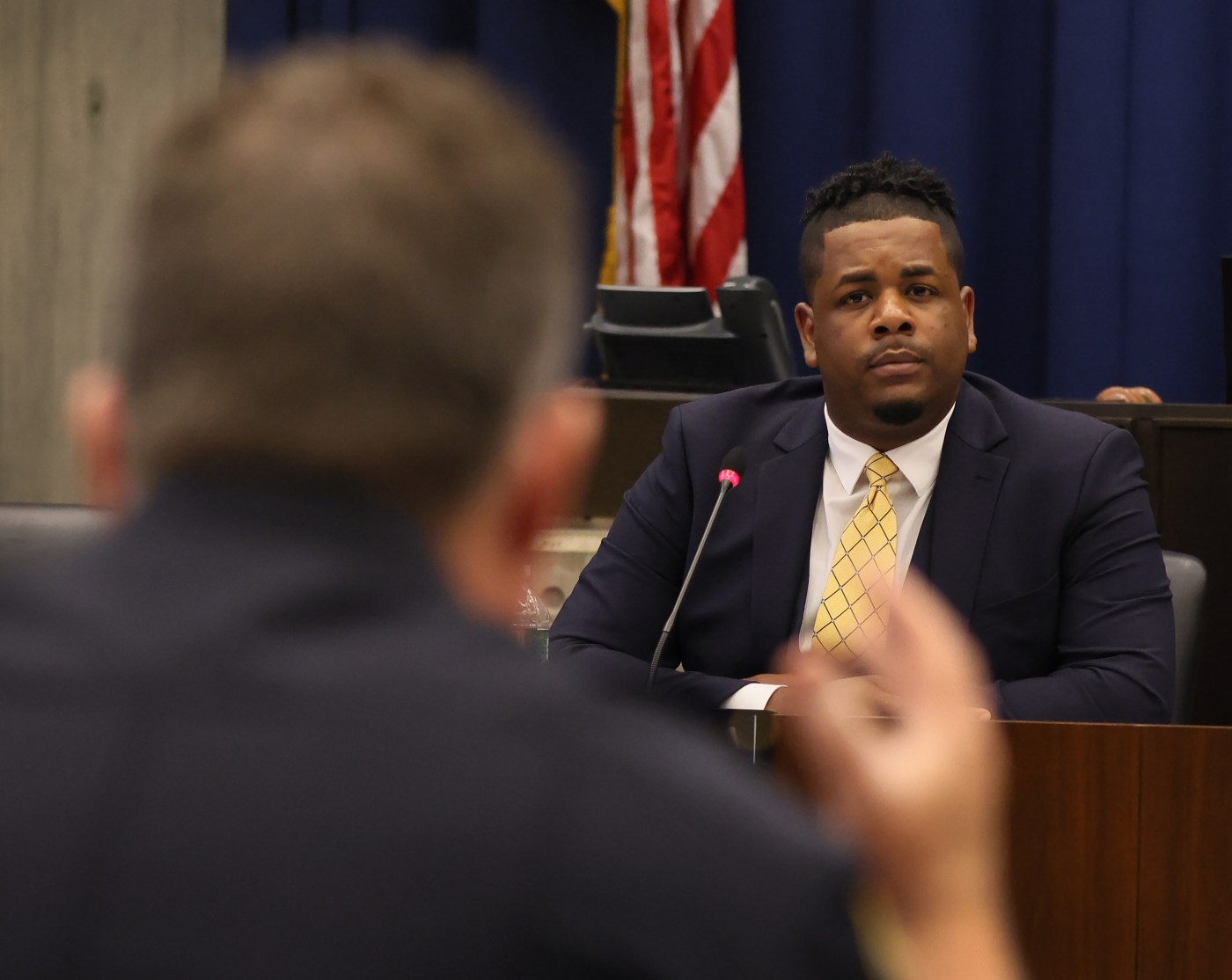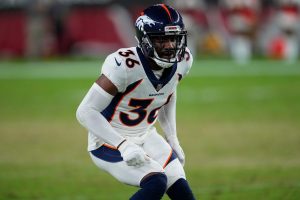
Boston Police credit use of ShotSpotter with saving a shooting victim on Monday, but City Council remains skeptical
Amid the latest police testimony around how ShotSpotter technology used by Boston PD contributed to saving the life of a shooting victim in Jamaica Plain this week, advocates and city councilors continue to challenge its effectiveness.
Deputy Police Superintendent John Brown spoke Wednesday of how the gunshot detection system, used in Boston for roughly 20 years, has helped to save lives in his zone, which includes Jamaica Plain, part of Roxbury, West Roxbury, Hyde Park and Roslindale and is where the last three major shootings have occurred.
Brown, in his testimony to the City Council, credited the role the technology played thus far in avoiding a fatality in a shooting that occurred Monday at 225 Centre St. in Jamaica Plain, where a “young man” was shot twice in the chest.
“Thank God he survived so far,” Brown said. “The officers responded due to ShotSpotter that day. Officers’ arms were covered in blood from putting in QuikClot to the wounds that this gentleman had that day from being shot.
“That was all due to the fact that they had information immediately,” the roughly 30-year veteran of the force added. “They were able to respond quickly and apply medical aid, and get that kid to the hospital as soon as possible.”
Brown went on to compare Monday’s rapid police response to what occurred on July 5, when the system was turned down to avoid frequently mistaking celebratory Independence Day fireworks for gunshots.
That night, he said, three people were shot inside the Bromley-Health public housing development in Jamaica Plain, and while all three lived, questions quickly surfaced as to why the police technology was turned down or shut off, particularly since the 911 call didn’t come in until 10 minutes after the incident took place.
“Most 911 calls take several minutes for someone to call because they think someone else is going to do it, particularly in areas of high crime,” Brown said.
Brown, his colleagues at the police department and a representative from SoundThinking, the company that produces ShotSpotter, consistently hammered into those points throughout the day’s hearing as evidence of the technology’s effectiveness, which has come under fire by several city councilors and advocates.
ShotSpotter places sensors that detect audio aimed at transmitting the sound and location of gunshots more quickly and accurately than a 911 call, helping to gather evidence, make arrests and save lives, but critics insist that it is ineffective and racially biased, given how it is deployed mainly in communities of color.
Much of the latest scrutiny is informed by a report released by the American Civil Liberties Union in April. Citing public records from the Boston Police Department, the report found that nearly 70% of ShotSpotter alerts resulted in no evidence of gunfire from 2020-22.
Sensors are placed over nine square miles in Boston, where gun violence has historically shown to occur the most. An expansion resulted in two square miles being added to the city’s coverage area, and police officials testified that limited federal funding means that it’s deployed only in hotspots rather than citywide.
Police also presented statistics that shed light on the perceived ineffectiveness of the technology, which showed that while nearly half of 423 ShotSpotter activations in 2023 resulted in no ballistic evidence, that may not necessarily indicate that no shooting took place.
Shots may have been fired from a car, for example, someone may have picked up and discarded the shell casings, or suspects may have attached a cartridge retrieval device, readily available on Amazon for roughly $10, to their gun to eliminate ballistic evidence.
Still, Kate Crawford, director of the ACLU of Massachusetts Technology for Liberty Project, insisted that its ineffectiveness has led other large cities like Chicago to cease use of ShotSpotter, and that given the findings of the report, Boston should get rid of it as well.
Related Articles
Boston mayor’s commercial tax rate plan clears the House, but hits a wall in the Senate
Boston’s Mass and Cass plan failed because it put housing before treatment, Massachusetts senator says
Boston City councilors, state senator seek emergency declaration over Steward closures
It’s ‘decimating our community’: Patients and staff on edge as Carney closure looms
Massachusetts Senate OKs bill to create 264 new liquor licenses in Boston: ‘Long overdue’
“People’s liberty is at stake here,” Crawford said. “People are being sent to prison in part on the evidence that is derived from ShotSpotter’s technology. It is absolutely critical that we get this right in the city of Boston and ensure that the Boston Police Department is using this technology responsibly.”
Several city councilors cited the ACLU report when pressing the police commissioner, Michael Cox, to delay signing a new contract to extend use of ShotSpotter in Boston during a police budget oversight hearing in late May.
While councilors expressed similar concerns at the day’s hearing, the Council is not looking to take any action currently, although it may look to do so in the future, Public Safety and Criminal Justice committee Chair Henry Santana said.
Commissioner Cox and Mayor Michelle Wu have said they plan to stick with ShotSpotter. The city’s prior three-year contract with SoundThinking, which expired in June, was for $782,610.
While several councilors remained skeptical, others expressed support for the technology, and, in the case of Councilor Ed Flynn, advocated for its expanded use.
“ShotSpotter is making the city of Boston safer,” Flynn said.


